Friday Review: Desire
What things or situations do you desire? Here are a few related posts you may have missed.
“We must reclaim our life agenda once more.”
“What is possible for you is dictated by your hunger, not your history.”

What things or situations do you desire? Here are a few related posts you may have missed.
“We must reclaim our life agenda once more.”
“What is possible for you is dictated by your hunger, not your history.”
The Seven Habits of Highly Effective People is one of my all-time favorite books.
I’ve read it numerous times over the years and even participated in several workshops and seminars based on its wisdom.
For some unknown reason I can’t recall ever seeing today’s quote.
The idea that our habits can be created and strengthened at the intersection of our knowledge, skills, and desires really hits home!
EXERCISE:
Draw a Venn Diagram with three overlapping circles to include each of these attributes.
Place the word Habit where the circles intersect and consider displaying this visual in an area you visit often to foster your capacities to create and strengthen the habits you most desire.
—Helen Keller, American author and educator who was blind and deaf
To what degree does today’s quote apply to how you live your life?
We’ve all heard over the years that happiness occurs in the present, however I frequently observe most folks still living by the phrase I’ll be happy when….
To what extent is fulfilling your expectations synonymous with happiness?
How often and how much is your satisfaction diminished when things fall short of your hopes and dreams?
EXERCISE:
Ask yourself:
What is working and going well in my life? How is your gratitude for these things already a source of happiness?
Ask yourself:
What am I working for that excites and inspires me?
How are your efforts and progress toward these objectives also a source of happiness?
There is nothing wrong with wanting things. The idea that we can separate our desires into two categories seems like a useful exercise if we feel the need to do a bit of re-balancing.
What goals are you pursuing that create a sense of agitation and stress?
Where are you pursuing power, status, or other achievements viewed and scrutinized by others in your communities?
What are some of your quieter goals that bubble up in stillness?
These are likely the ones with no specific metric or scoreboard to measure yourself.
EXERCISE:
Create two lists of your ego and soul-based desires.
Consider letting your level of agitation or stillness guide you to which items deserves more attention.
What things or situations do you desire? Here are a few related posts you may have missed.
“What is possible for you is dictated by your hunger, not your history.”
“I say yes when I mean no and the wrinkle grows.”
Michelangelo was born in 1475 and died in 1564. His longevity would be remarkable even today, with the average life expectancy of a man being somewhere between 78 and 83.
Perhaps it was his Mediterranean diet or disciplined exercise efforts that added those extra years. My guess would definitely include his industrious spirit and his desire for continuous learning.
His Sistine Chapel ceiling was completed between 1508 and 1512, and the Rondanini Pieta sculpture was produced in the year of his passing.
How strong is your desire to learn and grow? Where might exercising your learning muscles add more years to your life and life in your years? How does and can the pursuit of learning make your life a more beautiful work of art?
What are your thoughts and beliefs about the concept of desire? Here are a few related posts you may have missed.

“Don’t wait until you are lost to evaluate where you are going.”
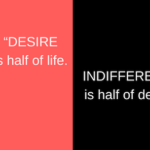
“Desire is half of life. Indifference is half of death.”
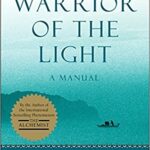
What are your thoughts and beliefs about the concept of desire? Here are a few desire-related posts you may have missed. Click the links to read the full message.
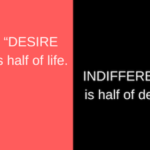
“Desire is half of life. Indifference is half of death.”

“Don’t wait until you are lost to evaluate where you are going.”
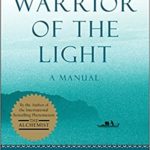

Image from Unsplash by Pawel Janiak
Today’s quote, and the related statement, “Just Do It,” helped make Phil Knight (CEO of Nike) one of the wealthiest people in the world, with an estimated net worth of 34.7 billion.
I am sure you are thinking there were many, many steps on his and Nike’s journey to success, but it all started with that first step. From there, it was on to the second and third… and the wonders of momentum.
It is a fact that something in motion will stay in motion unless acted upon by an external force.
How often do you stop yourself before you even begin?
On what priority project are you procrastinating, or stopped in your tracks?
What one step will you take to begin the journey to realize what you desire?
Consider sharing this goal or objective with a friend, family member, mentor, or even reply to this post to let me know what you intend, and for added social support.
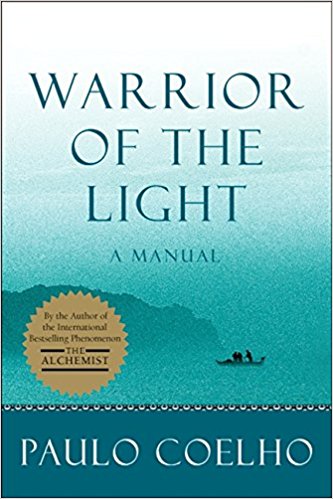
If you are a loyal reader of The Quotable Coach, or even if you are somewhat new to this resource, I’m sure you have surmised that I am a win-win, positive, and life affirming individual.
For me, looking at what is right and what is possible inspires me to be a coach and support others in pursuing extraordinary lives for themselves.
I do, however, get discouraged at times, particularly when I see how often some people think that in winning the game of life for themselves, others must lose or be proven wrong.
How can you tap into your own warrior spirit to achieve what you desire, without needing to vanquish your foe, or prove others wrong in the process?